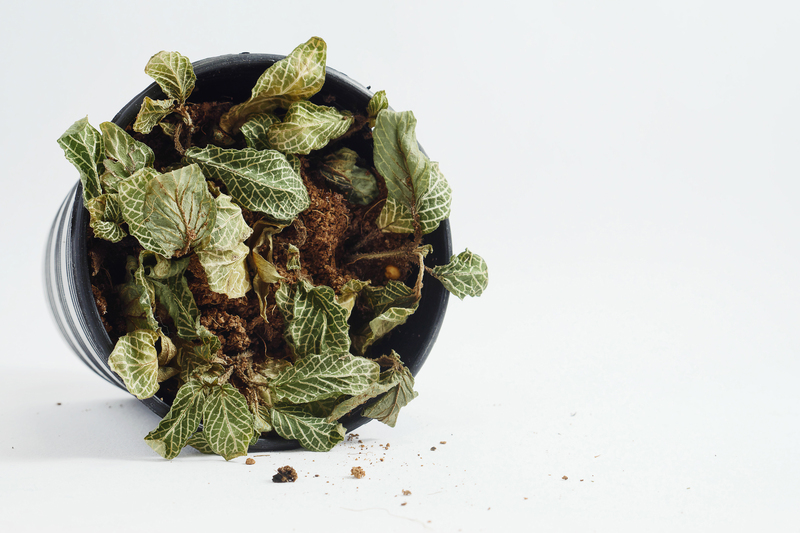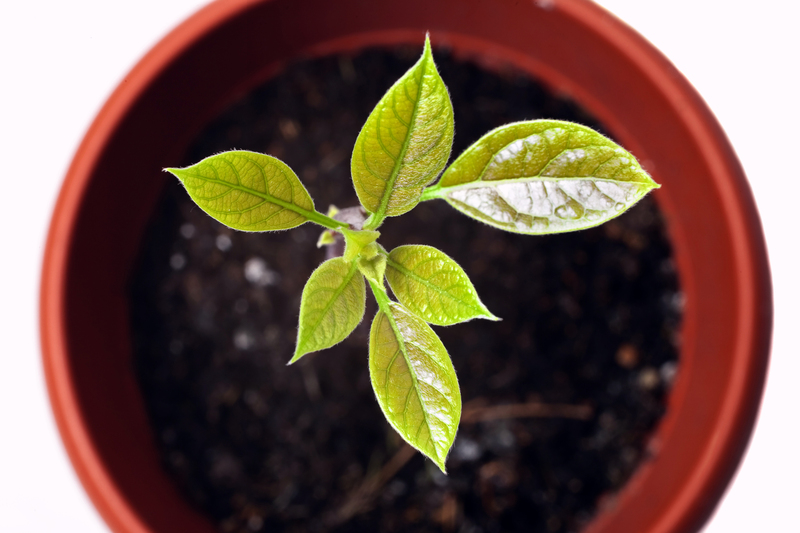Mastering the Art of Garden Weed Management
Posted on 03/09/2025
Mastering the Art of Garden Weed Management
Are relentless weeds taking over your garden oasis? Fear not! This guide will equip you with the expertise you need for effective weed control, ensuring a lush, thriving green space. Mastering the art of garden weed management is essential for every gardening enthusiast--whether you're cultivating vegetables, flowers, or a beautiful lawn.
Understanding Weeds: Your Garden's Unwanted Guests
Before we dive into the practical steps of garden weed management, it's important to understand what we're up against. Weeds are simply plants growing in unwanted places. They compete with your desired plants for water, nutrients, and sunlight, and can quickly become a gardener's biggest headache.
Common Types of Weeds in Gardens
- Annual weeds - Complete their life cycle in a year or less. Example: Crabgrass.
- Perennial weeds - Return year after year. Example: Dandelions.
- Biennial weeds - Live for two years. Example: Common mullein.
Identifying the weeds in your garden is the initial step towards effective weed management. Each type requires different control strategies for optimal results.

Why Effective Weed Management Matters
Projecting a beautiful, vibrant garden requires sustaining it free from invasive plants. Here are the main reasons why managing garden weeds is vital:
- Prevents competition: Weeds steal valuable resources from your plants.
- Maintains aesthetics: Unchecked weeds make your garden look untidy.
- Promotes plant health: Weeds can harbor pests and diseases.
- Preserves soil fertility: Some weeds deplete the soil of crucial minerals.
Mastering the art of weed control not only protects your investment but also enhances the overall health and yield of your garden.
The Golden Rules of Garden Weed Control
To master weed management in the garden, remember these timeless rules:
- Prevent weed growth.
- Identify and remove weeds early.
- Be persistent and consistent in your approach.
Timing Matters
Early intervention is the key to controlling garden weeds. Young weeds are easier to remove, and pulling them before they set seed reduces future invasions.
Integrated Weed Management Strategies
For the most effective results, use an integrated weed management approach. This means combining several methods to control and prevent weeds from spreading.
1. Preventive Garden Weed Management
- Start with clean soil: Rid your planting beds of weed seeds and roots before planting.
- Use mulch: Apply organic or synthetic mulch to block light and prevent weed seed germination.
- Choose competitive plants: Dense or fast-growing species dominate space, shading out weeds.
- Design garden beds smartly: Keep pathways weed-free and plant closely together where possible.
2. Physical and Mechanical Weed Removal
- Hand-pulling: Best for small gardens or areas with delicate plants.
- Hoeing and cultivating: Use sharp hoes to cut weeds at the soil surface.
- Proper mowing: Regularly mow lawns to prevent weeds from seeding.
- Flame weeding: Special tools apply direct heat to kill small weeds on paths or drives.
3. Chemical Control: Use Judiciously
Chemical herbicides should be a last resort. If you choose this route:
- Choose selective herbicides for safe use around wanted plants.
- Apply when wind is calm to avoid drift.
- Follow label instructions meticulously.
- Consider organic, eco-safe alternatives when possible.
4. Cultural and Biological Solutions
- Crop rotation: Growing different crops each year disrupts weed life cycles.
- Cover cropping: Planting cover crops suppresses weeds and enriches soil.
- Introduce groundcovers: Low-growing plants form a living mulch.
- Encourage weed-eating insects or animals: Geese and certain beneficial beetles consume weed seeds.
Proven Tips for Successful Garden Weed Management
From expert gardeners and horticulturists, here are gold-standard tips:
- Inspect Weekly: Walk through your garden regularly to spot new weed growth.
- Remove All Roots: When pulling perennial weeds, extract the entire root to avoid regrowth.
- Mulch Deeply: Use at least 2-3 inches of mulch for optimal weed suppression.
- Water Wisely: Drip irrigation targets plants, making conditions less favorable for weeds.
- Deadhead Weeds: If weeds flower before pulling, immediately remove and dispose of seeding heads.
Persistence truly pays off in the quest to manage garden weeds. Combining these techniques ensures year-round weed suppression and manageable maintenance.
Natural and Organic Weed Control Techniques
Many gardeners prefer eco-friendly approaches. Some natural weed management strategies include:
- Cardboard or newspaper layers: Set these under mulch to smother weeds and improve soil.
- Vinegar spray: Target young weeds with a vinegar and water mixture.
- Boiling water: Pour directly onto weeds in paths or driveways, but avoid desirable plants.
- Corn gluten meal: Prevents annual weed seeds from germinating (best for lawns).
While these organic remedies can help, persistence and thoroughness are still needed for consistent results.
Common Mistakes to Avoid in Weed Control
To truly master garden weed management, avoid these frequent pitfalls:
- Letting weeds go to seed: One weed can produce thousands of seeds. Don't delay removal!
- Pulling only the tops: Many perennial weeds regrow from remaining roots.
- Overusing chemical herbicides: This can cause environmental harm and resistance.
- Neglecting garden edges: Weeds often invade from lawn borders or fence lines first.
- Composting seeding weeds: Hot composting can kill seeds, but cold piles may spread them.
Organizing a Year-Round Weed Management Plan
Strong weed management in gardens isn't seasonal--it's a year-round process. Here's how to plan:
Spring:
- Apply fresh mulch.
- Start weekly inspections for new growth.
- Pre-emergent applications if desired.
Summer:
- Pull weeds consistently before they flower or seed.
- Trim and maintain mulch layers.
- Water plant roots, not bare soil.
Autumn:
- Remove late-season weeds and roots.
- Plant cover crops or groundcovers.
- Maintain mulched paths and edges.
Winter:
- Review and plan weed management strategies for next year.
- Inspect and repair garden barriers.
Weed Management Tools Every Gardener Needs
Arm yourself with the right tools for mastering weed control:
- Hand trowels for precise digging.
- Stirrup or oscillating hoes for efficient surface weeding.
- Weed pullers for deep roots.
- Mulching forks to apply or replenish mulch.
- Wheelbarrow for debris removal.
Investing in quality tools makes the maintenance of a weed-free garden much more manageable and satisfying.
The Role of Mulch in Superior Weed Suppression
Mulching deserves a special mention in the art of effective weed management. It acts as a physical barrier, blocks sunlight, improves moisture retention, and even enriches your soil as it decomposes.
- Organic mulches: Shredded bark, straw, compost--feed soil as they break down.
- Synthetic mulches: Landscape fabric, plastic--ideal for vegetable beds or paths.
Apply mulch after soil has warmed in spring and keep it away from plant stems to prevent rot.

Creating a Healthy, Less Weed-Prone Garden Environment
Strong, thriving plants naturally outcompete weeds. To reduce weed pressure over time, focus on:
- Healthy soil: Add compost and organic matter regularly.
- Proper spacing: Crowded plants leave fewer open spaces for weeds.
- Consistent care: Prune, water, and fertilize to maintain plant vigor.
- Routine observation: Quick attention to emerging weeds stops major problems.
As your garden matures, you'll notice a natural decline in weed issues--especially when using these habitat-building strategies alongside hands-on management.
Conclusion: Becoming a Master in Garden Weed Management
Mastering the art of garden weed management is equal parts science, patience, and hands-on diligence. By understanding the types of weeds, using an integrated control approach, and keeping up with regular garden maintenance, your battle with unwanted plants will become easier every season.
Remember: prevention is more efficient than cure. Focus on early intervention, smart gardening design, mulching, and maintaining healthy soil conditions. Over time, you'll spend less energy fighting weeds and more enjoying the beauty and bounty of your well-tended garden.
With experience and persistent effort, you really can master the art of weed management in your garden, creating a vibrant sanctuary that flourishes for years to come.
Frequently Asked Questions
- What is the best time to weed my garden? -- Early morning or after rainfall, when the soil is moist, makes weeding easier and more effective.
- How often should I weed? -- Ideally, walk through and weed areas weekly to keep ahead of weed growth.
- Can I compost pulled weeds? -- Only non-seeding weeds should go in the compost. Seeding weeds can spread via the compost if not hot-composted thoroughly.
Start today--small actions make a big difference in mastering garden weed control for a healthier, more beautiful outdoor space!



